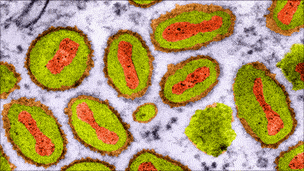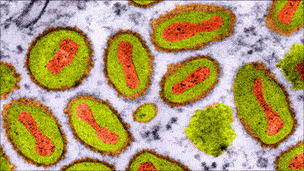An engineered virus injected directly in the patient’s blood has shown some remarkable promise in targeting and destroying cancer cells, in what researchers have called a first.

For the purpose of this treatment, researchers modified the vaccinia virus, which is most famous for helping develop a smallpox vaccine. The virus, named JX-594, is dependent upon a chemical pathway, common in some cancers, in order to replicate. So far, it was injected in different doses in 23 patients, all of which had cancerous cells in multiple organs. Out of 8 who were given the highest dose, in 7, the virus replicated in tumours and started attacking the cancer cells, leaving the healthy areas alone.
Prof John Bell, lead researcher and from the University of Ottawa, said:
“We are very excited because this is the first time in medical history that a viral therapy has been shown to consistently and selectively replicate in cancer tissue after intravenous infusion in humans. “Intravenous delivery is crucial for cancer treatment because it allows us to target tumours throughout the body as opposed to just those that we can directly inject.”
The infection prevented further tumour growth in six patients; however, the virus didn’t cure the cancer. The patients were given only one dose of the virus as the trial was designed to test the safety of the virus.
Cancer Research UK’s Prof Nick Lemoine, also director of Barts Cancer Institute, said:
“Viruses that multiply in just tumour cells – avoiding healthy cells – are showing real promise as a new biological approach to target hard-to-treat cancers. This new study is important because it shows that a virus previously used safely to vaccinate against smallpox in millions of people can now be modified to reach cancers through the bloodstream – even after cancer has spread widely through the patient’s body. It is particularly encouraging that responses were seen even in tumours like mesothelioma, a cancer which can be particularly hard to treat.”
UPDATE: In 2013, a vaccine with 50% regression rate was tested on mice. Human clinical trials might begin shortly.









